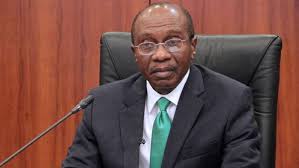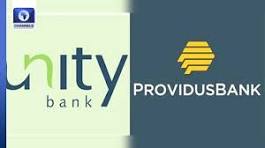Jitters as Nigerian banks brace up for more loan provisioning

Banks are worried about rising cases of bad loans and will go after defaulters.
Nigerian banks are bracing up to provide for more bad loans, as they approach the end of the financial year 2020. The Covid-19 pandemic has severely affected businesses, causing low patronage, a dip in revenues, a higher cost of operations, and crushing debts.
The situation is said to have spooked some of Nigeria’s biggest banks, especially as several events in the country point to an uncertain 2021 for businesses in the economy. This, our sources reveal, has informed a spate of high profile court orders obtained against businesses owned by billionaires in the country.
According to data from the National Bureau of Statistics, total banking sector credit to the economy stood at about N18.8 trillion in the second quarter of 2020 up from N17.1 trillion at the end of 2019. However, non-performing loans at the end of the second quarter of 2020 rose by 2.27% to N1.2 trillion.
Available data indicate that Nigerian banks have made provisions for about N211.2 billion alone in 2020 compared to N182.9 billion in 2019. This is still far lower than the N551.5 billion provided for by the banks in 2016 when Nigeria was in a recession, with the exchange rate in a tailspin. Things are even worse compared to 2016 due to the effects of Covid-19, lower oil prices, and insecurity.
Our sources believe the level of non-performing loans is probably worse than reported if banks were to deploy strict prudential guidelines which allow for stricter provisioning of non-performing loans. At the peak of the pandemic, most banks moved quickly to restructure loans that were in danger of going bad, allowing obligors breathing space to generate cash flows. Some banks issued moratoriums on loan repayments.
Despite this, there is growing apprehension that some of the loans could crystallize as bad in 2021, especially if insecurity and social unrest continues to impact negatively on business operations across the country. The fall in oil prices, coupled with crude oil cuts imposed on Nigeria is also a challenge for local oil majors to meet their debt obligations.
Oil and Gas Loans Take Center Stage
The Oil and Gas sector is a source of huge concern to most of the banks, especially due to the fall in oil prices and the cut in Nigeria’s export quota. With oil prices down and the cost of production higher, local oil majors are struggling to meet up with their debt obligations of nearly N5 trillion.
Based on NBS data, total oil and gas loans in Nigeria are estimated at about N4.94 trillion as of the second quarter of 2020, or a combined 26.2% of total credit to the private sector.
The loan is further divided into Oil and Gas upstream with N3.6 trillion, and the balance N1.3 trillion for the downstream (oil services) sector.
Oil and Gas also make up about N268.7 billion in non-performing loans or 22.1% of the total.
Earlier in the year, banks cut a deal with the CBN as they were granted regulatory forbearance in the restructuring of loans. The deal meant over 33% of industry loans were restructured as part of the deals signaling the spate of economic crunch that had hit the private sector.
Most of these loans are Oil and Gas loans, as they dominated most of the questions and responses in the earnings calls of most of the top commercial banks Nairametrics listened to.
CBN Raises Red flags
The rising non-performing loans were also a major concern for the central bank, following the end of its monetary policy committee meeting on November 23rd. In one of the excerpts, the CBN reported as follows:
“MPC noted the improvement in Financial Soundness Indicators of the DMBs which showed Capital Adequacy Ratio (CAR) of 15.5 percent, Non-Performing Loans (NPLs) of 5.73 percent and Liquidity Ratio (LR) of 35.6 percent, as at October 2020. As regards nonperforming loans (NPLs), MPC, however, noted that the ratio remained above the prudential benchmark of 5.0 percent and urged the Bank to sustain its tight prudential regime to bring it below the benchmark.”
The comment from the central bank suggests they are concerned about the rising levels of non-performing loans and have basically given the banks green light to go after debtors. One of the many tools the banks have to recover their loans is the use of the Global Standing Instructions introduced earlier in the year.
Court Orders and AMCON
However ,finding revealed that some of the heavy obligors have found ways to beat the trap, and even when they do not, they do not have cash in their accounts that the banks can lay claim to. This is why some of the banks have gone the route of court orders to seize the properties of defaulters.
Just last week, Nigeria’s Access Bank obtained a court order that enabled it to seal the corporate head office of Seplat Petroleum Development Company. AMCON, Nigeria’s bad debt company, has also been busy all year round, seizing assets of loan defaulters.

Riding on the back of its amended act that gave it sweeping powers to go after loan defaulters, it has deployed several tactics such as naming-and-shaming, outright sealing of properties, working with EFCC to arrest defaulters, blocking bank accounts, etc., just to recover its loans. AMCON currently holds over N5 trillion of bad loans on its books.




